Table of Contents
Introduction
Delta-8 THC is everywhere lately—from headshops to hemp stores to online ads promising a smoother high. Often called “weed light” or “legal THC,” Delta-8 claims to offer many of the same effects as regular cannabis, but with less anxiety, gentler intensity, and broader legal access. But is that the full story?
This guide explores what Delta-8 really is, how it compares to Delta-9 THC, how it’s made, its effects on the body, and whether it’s safe or legal to use. We’ll also explore how quality varies dramatically between products and why responsible sourcing matters more than ever.
Let’s start by understanding what Delta-8 actually is—and why it’s suddenly so popular.
What Is Delta-8 THC?
Delta-8-tetrahydrocannabinol (Delta-8 THC) is a naturally occurring cannabinoid found in cannabis—but only in very small amounts. It is a chemical cousin of Delta-9 THC, the compound most commonly associated with the cannabis high.
Delta-8 is considered a minor cannabinoid, usually appearing at levels below 0.1% in dried flower. To make Delta-8 available at scale, most products are synthesized by chemically converting hemp-derived CBD into Delta-8 via lab-based extraction processes.
Delta-8 binds to the same CB1 receptors in the brain as Delta-9 THC but with slightly different molecular structure and binding affinity. This makes the resulting effects somewhat milder and more clear-headed for many users—though still psychoactive.
Delta-8 began gaining popularity in 2020 as a legal workaround to cannabis restrictions, thanks to the 2018 U.S. Farm Bill and its treatment of hemp-derived compounds. Since then, Delta-8 has exploded onto the market in vapes, gummies, tinctures, and even infused flower.
How Delta-8 Interacts with the Body
Delta-8 interacts with the body through the endocannabinoid system (ECS)—a complex network of receptors, enzymes, and chemical messengers that regulate mood, sleep, appetite, memory, and immune function. Like Delta-9, Delta-8 primarily binds to CB1 receptors in the central nervous system, but with lower potency.
Pharmacological Profile of Delta-8:
- CB1 receptor interaction: Weaker binding than Delta-9 THC → gentler high
- CB2 receptor interaction: May play a role in body-focused effects like pain modulation
- Neurotransmitter effects: Increases dopamine and affects serotonin levels—contributing to euphoria and relaxation
Delta-8 is psychoactive, but many users report fewer side effects like anxiety or paranoia. Some describe it as “THC with a seatbelt” or “Delta-9 without the chaos.” It still affects cognition, reaction time, and memory—so it should be used with the same respect as any cannabis-derived compound.
Effects: What to Expect from Delta-8
Delta-8 is psychoactive, but its effects are typically described as milder, smoother, and less overwhelming than those of Delta-9 THC. Many users say it offers the relaxation and mood lift of cannabis—but without the mental fog, paranoia, or overstimulation that sometimes accompanies high-THC flower or edibles.
Commonly Reported Effects of Delta-8:
- Mild euphoria and uplifted mood
- Calm, anxiety-reducing body sensation
- Light sedation or full-body comfort (dose-dependent)
- Enhanced focus or mental clarity at low doses
- Increased appetite (less intense than Delta-9)
Effects can vary widely depending on dose, delivery method, and your personal body chemistry. Edibles may produce longer, heavier effects; vaping may deliver quicker, shorter-acting results.
Pro tip: Delta-8 effects are best experienced at low-to-moderate doses. Too much can still cause grogginess, dizziness, or even anxiety in some users—especially with unregulated or poorly formulated products.
Delta-8 vs. Delta-9 THC
While Delta-8 and Delta-9 are chemical isomers (they share the same formula, but have different atomic arrangements), their real-world effects can feel noticeably different.
| Characteristic | Delta-8 THC | Delta-9 THC |
|---|---|---|
| Psychoactivity | Yes – moderate | Yes – strong |
| Anxiety Risk | Lower | Higher, especially at high doses |
| Legality (U.S.) | Federally legal under hemp laws (state-dependent) | Federally illegal (state-legal in many) |
| Potency | ~60–70% of Delta-9 | Full strength |
| Availability | Easily found online, headshops | Dispensaries, legal states |
Ultimately, Delta-8 may appeal to those seeking a more manageable cannabis experience or living in places where Delta-9 THC remains restricted.
Is Delta-8 Legal?
Delta-8’s legal status is complicated—and constantly evolving. It exists in a legal grey area that differs dramatically depending on your country or U.S. state.
Thanks to the 2018 Farm Bill in the United States, hemp-derived cannabinoids (including Delta-8) are federally legal as long as they contain less than 0.3% Delta-9 THC by dry weight. This loophole allowed Delta-8 to flourish in states without recreational cannabis laws.
However, since Delta-8 is psychoactive, several states have moved to ban or restrict it, citing safety, manufacturing concerns, and lack of regulation.
Where Delta-8 May Be Banned or Restricted (U.S.):
- Colorado
- New York
- Alaska
- Montana
- Rhode Island
- Vermont
- North Dakota
- Washington State
Always check your local laws before purchasing or using Delta-8, as enforcement and rules vary by jurisdiction and change frequently.
How Delta-8 Is Made (and Why It Matters)
Because Delta-8 occurs naturally in very small amounts, nearly all commercial Delta-8 is made through chemical conversion—usually by transforming hemp-derived CBD isolate in a lab.
The Process (Simplified):
- Start with purified CBD isolate from hemp
- Apply acid and heat in a controlled lab setting
- This rearranges the molecule into Delta-8 THC
- Resulting mixture is refined and filtered to remove byproducts
While this process is legal under federal hemp law (if done right), it also opens the door to concerns:
- Residual solvents: Poor lab practices may leave behind harmful chemicals
- Unknown byproducts: If not purified properly, synthetic byproducts may remain in the final product
- No testing standards: Unlike legal cannabis, Delta-8 is largely unregulated and inconsistently lab-tested
As a result, product quality varies dramatically. Some Delta-8 products are clean and well-formulated. Others may be unsafe, mislabeled, or even contain synthetic cannabinoids not listed on the label.
Tip: Always buy Delta-8 from brands that provide full-panel lab results (COAs) for every batch, and avoid anything that doesn’t disclose exact ingredients or source.
Risks, Red Flags & Safety Considerations
While Delta-8 offers appealing effects and easier access, it’s not without concerns—especially due to inconsistent manufacturing practices and lack of long-term research. Here’s what beginners and frequent users should be aware of:
Potential Risks of Delta-8 Use:
- Overconsumption: Edibles and carts may contain more THC than advertised
- Poor labeling: Some products contain Delta-9 or synthetic cannabinoids without disclosing it
- Contaminants: Residual solvents, acids, or unknown byproducts from poor conversion practices
- Unexpected side effects: Drowsiness, fog, anxiety, or grogginess—especially with high doses or questionable products
Warning signs to avoid:
- No Certificate of Analysis (COA) available or vague testing results
- Artificial flavoring or no ingredient list
- Sold at gas stations, flea markets, or convenience stores
- Promises of “legal weed” with ultra-high potency and no explanation
Should You Try Delta-8?
Delta-8 can be a great option for:
- People seeking a milder, clear-headed high
- New users who feel anxious on Delta-9 THC
- Individuals living in states where Delta-9 is illegal but hemp is permitted
- Daytime users who want gentle relaxation or light mood lift
However, it’s not recommended if:
- You are sensitive to any THC
- You are pregnant, nursing, or have serious mental health conditions
- You cannot access lab-tested, well-sourced products
- You’re subject to regular drug testing (Delta-8 can trigger a THC-positive result)
For best results, start low, use trusted brands, and opt for vaporizing with precision tools like the Vapman or Lotus for smooth, clean microdoses.
Conclusion
Delta-8 THC has carved out a unique space in the cannabis world—offering a milder psychoactive experience, wider legal availability, and an accessible entry point for those curious about THC but wary of its stronger cousin, Delta-9.
While Delta-8’s effects can be smooth, uplifting, and clear-headed, its production, legality, and safety remain a gray area. Poor manufacturing practices, inconsistent labeling, and limited research mean that not all Delta-8 products are created equal. If you’re considering it, prioritize quality, dosing precision, and reputable sourcing.
And remember: tools like the Vapman or Lotus allow you to enjoy Delta-8 gently and intentionally—one breath at a time. Inhalation doesn't have to be extreme; it can be refined, controlled, and tailored to your rhythm.
Stay informed. Stay mindful. And use cannabis—of any kind—with respect and clarity.
About the Author

Author: Michael Mussner, Founder of INHALE Vaporizers
Michael is a passionate vaporizer designer and entrepreneur from South Tyrol, driven by craftsmanship, sustainability, and the mindful use of natural herbs. With a background in product innovation and a love for analog technology, he founded INHALE to revive flame-powered vaporizers like the Vapman and Lotus. Every product he creates is deeply rooted in authenticity, simplicity, and a respect for nature.
Questions? Contact us here or email support@nowinhale.com.



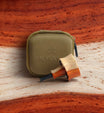
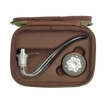

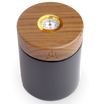
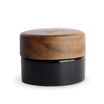
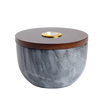
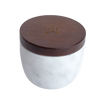
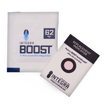
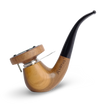


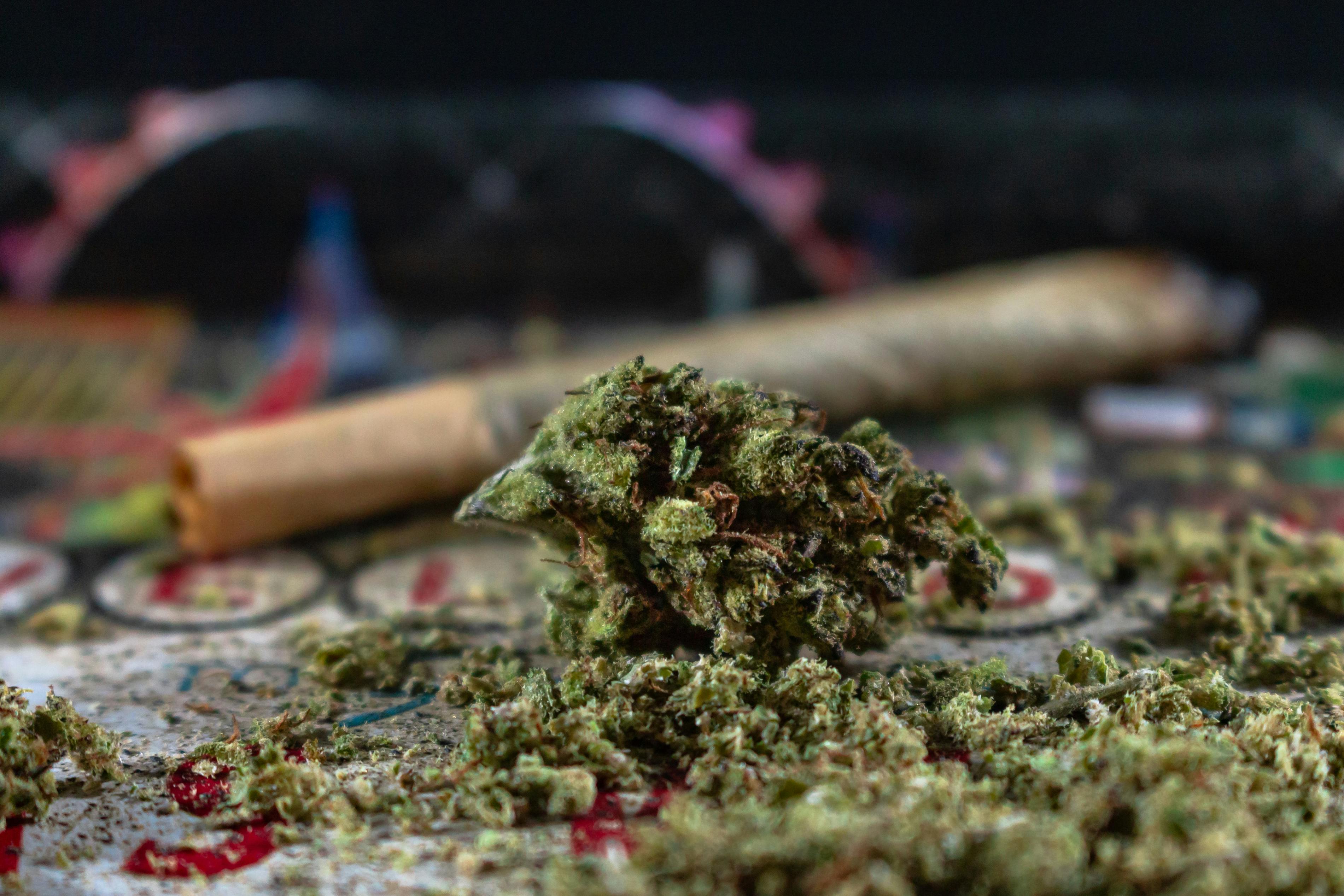



Leave a comment
All comments are moderated before being published.
This site is protected by hCaptcha and the hCaptcha Privacy Policy and Terms of Service apply.